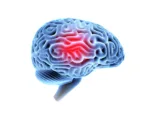
Understanding Alcoholism as a Chronic Disease of the Brain
Battling addiction is not easy. Those who struggle with addiction often share how lonely, disheartening and overall hard it is to face and fight addiction. This is not because they are not interested in getting better – it is because alcohol addiction changes brain chemistry and negatively impacts the way the brain responds to and craves the substance.
It is additionally hard because alcohol use disorder is not simply an addiction; it is a chronic disease, and these can take years, if not one’s whole life, to overcome.
What is a chronic disease?
According to the CDC, “Chronic diseases are defined broadly as conditions that last one year or more and require ongoing medical attention or limit activities of daily living or both … Some groups are at higher risk of chronic diseases because of conditions where they are born, live, work, and age. These nonmedical factors, called social determinants of health, can be positive or negative. When negative, they limit the opportunities to make healthy choices and get good medical care.”
Chronic diseases significantly decrease the quality of life for an individual and may interfere with their job attendance and performance, their participation in social activities and their overall mental health. This is one of the reasons addiction, including alcohol addiction, is often considered a chronic disease. It negatively takes over one’s life. Plus, its symptoms can be acutely uncomfortable.
Is alcoholism a chronic disease?
According to an article from Indiana University Health, “The American Medical Association (AMA) classified alcoholism as a disease in 1956 and included addiction as a disease in 1987. In 2011, the American Society of Addiction Medicine (ASAM) joined the AMA, defining addiction as a chronic brain disorder, not a behavior problem or just the result of making bad choices. Research and input from top addiction authorities, addiction medicine doctors, neuroscientists and experts from the National Institute on Drug Abuse agree in classifying addiction as a disease.”
More specifically, alcohol use disorder is considered a chronic brain disorder and can be classified as mild, moderate or severe based on the number of symptoms one shows. These symptoms include:
- Drinking more than initially planned
- Trying to reduce or manage one’s alcohol consumption but being overall unsuccessful
- Using much of one’s day obtaining, drinking or recovering from alcohol
- Needing to drink more alcohol to feel the same effects
- Seeing a change in your work performance and commitment to social obligations as a result of drinking habits
- Witnessing the adverse effects of alcohol use on your finances, your physical and mental health and relationships, but still choosing to drink/feeling unable to stop drinking
- Experiencing withdrawal symptoms when you try to quit consuming alcohol
Two to three symptoms usually mean a mild disorder, four to five would equate to a moderate disorder, and severe disorders usually entail the development of six or more.
What causes alcohol use as a chronic disease?
Just like any chronic disease, it can be challenging to pinpoint the exact cause of alcohol use disorder. Certain risk factors, however, may predispose some individuals to develop this over others. Common risk factors include:
- Genetics – It has been noted that alcohol use disorder tends to run in families, although not every member of the family is guaranteed to show symptoms
- Getting into a habit of consuming alcohol at a young age
- A pre-existing physical health condition
- A pre-existing mental health condition
- Certain environmental factors, including peer pressure or spending a lot of time in places/environments where drinking is encouraged
- Chronic stress
Not everyone who is predisposed to these risk factors is guaranteed to develop an addiction, but it is essential to note. Addiction does not discriminate and can still affect anyone regardless of age, sex, financial situation, education and upbringing.
Can I find relief from alcohol use disorder?
Absolutely yes.
Even though alcohol changes the chemistry of the brain and significantly negatively impacts one’s life, there are plenty of ways in which you can begin taking the steps toward healing and recovery.
At Bluff August, our staff of mental health professionals is standing by to provide you with the detox treatment and aftercare you need to overcome a habit of alcohol use. To get in touch with someone who can help today, contact us online or at our offices by calling [phone_linked] to learn more.








